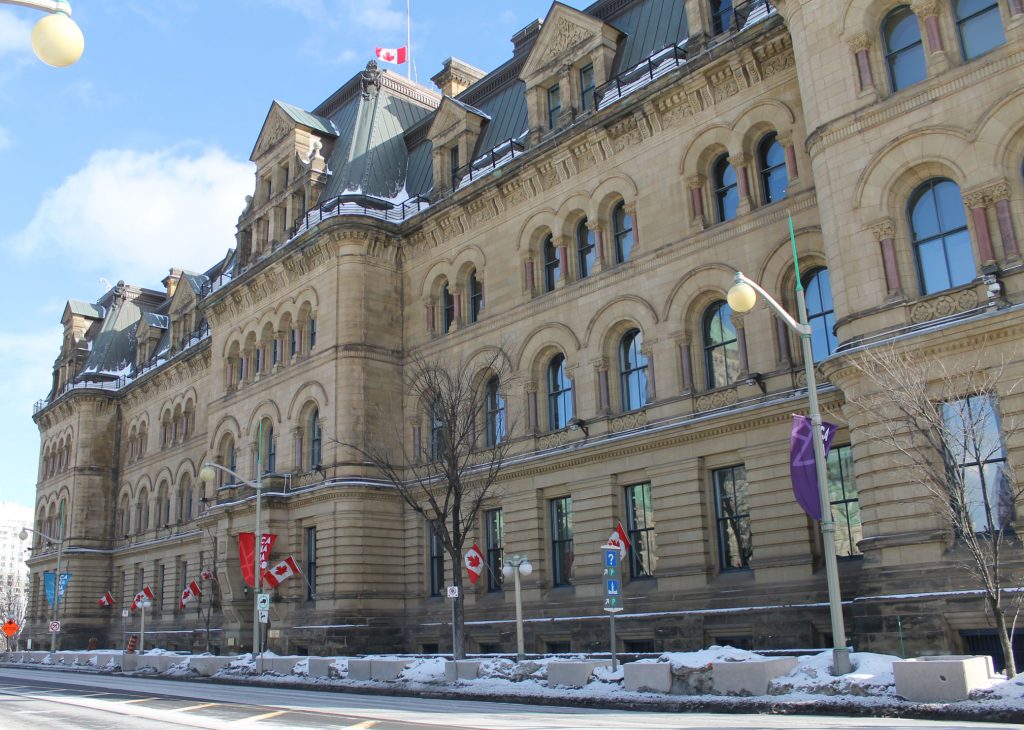Indigenous leader calls for Langevin site rename
By Mike Barry
A First Nations leader in Calgary has called for a name change for Langevin Block, the historic building across from Parliament Hill that is the Office of the Prime Minister.
Kevin Littlelight, council member for Tsuu T’ina Nation in Calgary, has publicly called on the Assembly of First Nations to submit a request to rename the building at the corner of Elgin and Wellington streets. There has not yet been an official response from the AFN.
Hector Langevin — a Father of Confederation and the building’s namesake — was cited in a 2015 “Calls to Action” report, published by the Truth and Reconciliation Commission of Canada, as having had an instrumental role in establishing the residential school system that — for generations beginning in the 19th century — harmed tens of thousands of Canada’s indigenous people and had lasting impacts on First Nations, Inuit and Métis communities across the country.
The call to rename the historic site comes on the heels of a decision to rename Langevin Bridge in Calgary “Reconciliation Bridge.” The motion, recommended by the city’s aboriginal urban affairs committee, passed in a 14-1 vote on Jan 23.
The idea to rename the site has garnered a negative reaction from some people in Ottawa.
Pierre Anctil, Canadian history professor at University of Ottawa, opposes the call to rename Langevin Block.
“It’s called revisionism,” said Anctil. “You revise history to suit your purposes at a certain point in time, and you decide that, ‘Well, what was written in history and whoever was honoured in the past, that’s finished, we’re putting new names.’ It’s a complex and difficult process because usually it replaces problems with other problems. And it’s usually done in totalitarian societies.”
Langevin was the Minister of Public Works in the government of John A. Macdonald when he advocated for the institutionalization of the residential school system in the early 1880s.
“If you leave them in the family they may know how to read and write, but they still remain savages,” Langevin told Parliament in 1883, using language that was common at the time.
Anctil said that though a statement like this would be abhorrent if made today, it wasn’t uncommon when contextualized with society’s general attitude at the time.
“If each time we have a problem with a historical figure, we erase the person from our history books or from the names in cities, I don’t think it resolves a great deal. It tends to make a reading of history much more difficult,” said Anctil.
“If this was done systematically, most of the names we have of Canadian politicians would have to be erased from memory. It’s usually not a good sign that a society is willing to forget its past to accommodate the present.”
Anctil said there are better methods to accomplish the goal of educating Canadians about wrongs committed through the residential school system.
Discussing the reality of history, educating and understanding context are among these ways.
“I think a good campaign to make people realize that the government did wrong to certain communities would work better than changing names right and left.”

